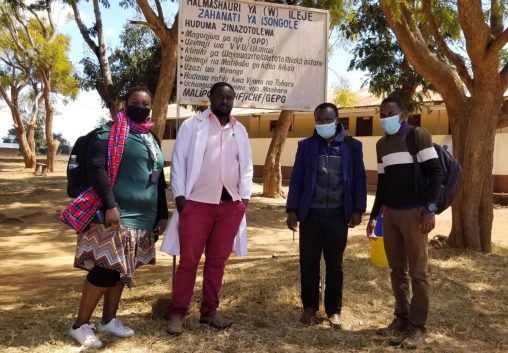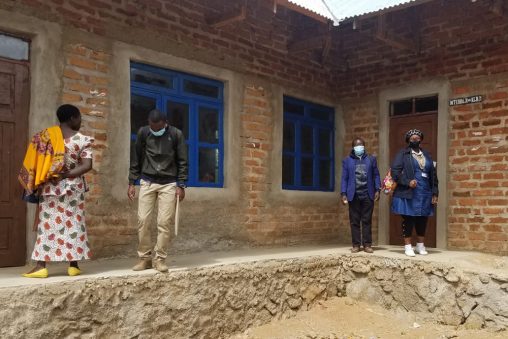
Rosemary Eustace, professor of nursing, received a Carnegie African Diaspora Fellowship to raise breast cancer awareness in Tanzania.
“We need education.”
This is what Rosemary Eustace, Ph.D., Wright State University professor of nursing, and her team heard from women and their spouses during a pilot project on breast cancer awareness and screening in the east African nation of Tanzania over the summer.
The prestigious Carnegie African Diaspora Fellowship Alumni Program (CADFP) supported the research collaboration between Eustace and Tumaini Nyamhanga at Muhimbili University of Health and Allied Sciences (MUHAS) in Dar es Salaam, Tanzania.
The 40-day fellowship, from July 3 to Aug. 11, was carried out in the Ileje District of the Songwe region of Tanzania.
Eustace said the highlight of the fellowship was experiencing the fruition of international collaborative research and being able to travel and participate in the project planning and implementation.
“The community engagement on the project was phenomenal and highly appreciated,” she said. “The preliminary data from this study truly brings to light the importance of family-level data in improving population health around breast cancer awareness and clinical breast exam as methods for early diagnosis for breast cancer in Tanzania.”
The Blanke Research Funds, the only endowment for the Wright State University School of Nursing, funded the study.
Eustace said coping with the COVID-19 pandemic was a challenge, especially with COVID testing requirements between countries and uncertainties related to the risks for exposure.
She said the most gratifying part of the experience was being embraced as part of the community both as a scholar interested in advancing global health science and one who was there to build research capacity and study abroad programming.
“I credit these successes to the mutual and win-win open, safe and trusting relationship as well as the support received from both institutions and professional mentors,” she said. “It is usually not easy to develop and sustain international research collaborations. I was pleased to see growth in our relationship.”
Eustace received her first CADFP fellowship in 2017, enabling her to build a relationship with MUHAS in research and global health learning.
The fellowship program sends African-born scholars who are teaching at American or Canadian universities to Africa to work with faculty at African institutions on curriculum development, research and graduate teaching, training or mentoring activities. Similar to the Peace Corps and Fulbright programs, it is designed to harness the expertise of Africa-born Fellows in North America to improve higher education standards in Africa.

Rosemary Eustace, Dr. Tumaini Nyamhanga and a nurse intern outside a village executive office in Ileje.
The fellowship is offered by the Institute of International Education in partnership with the United States International University-Africa and is funded by a grant from the Carnegie Corporation of New York. Over the past four years, more than 270 fellowships at over 100 African universities have been funded.
Eustace and Nyamhanga say they are very pleased by the fellowship research activities and outcomes so far. Without the fellowship, they would have not been able to sustain the relationship, which Eustace hopes will open new institutional linkages between Wright State and MUHAS amid growing interest.
Eustace recently completed the curriculum of the prestigious 2021 National Cancer Institute Multilevel Intervention Training Institute. She plans to collaborate with Nyamhanga on a National Institutes of Health research application for a multilevel intervention study in Tanzania.
Over the past 11 years, Eustace has directed an interdisciplinary Wright State–MUHAS collaborative study abroad program to Tanzania, which attracted more than 40 students. The program has been closed to enrollment for the past two years due to COVID, but Eustace and the MUHAS faculty are exploring the possibility of developing a virtual global health study abroad program.

 Wright State student-athletes make a lasting impact on local family, more to come
Wright State student-athletes make a lasting impact on local family, more to come  Wright State names Rajneesh Suri dean of Raj Soin College of Business
Wright State names Rajneesh Suri dean of Raj Soin College of Business  ‘Only in New York,’ born at Wright State
‘Only in New York,’ born at Wright State  Wright State president, Horizon League leaders welcome new commissioner
Wright State president, Horizon League leaders welcome new commissioner  Wright State celebrates homecoming with week-long block party
Wright State celebrates homecoming with week-long block party 